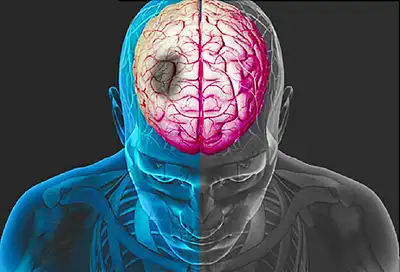|
|
Stroke Causes, Symptoms And Prevention
Money Land Forum / Health / Stroke Causes, Symptoms And Prevention (1 Post | 156 Views)
(1) (Go Down)
|
Stroke Causes, Symptoms And Prevention by atoluwash(m) : 11:17 am On Nov 06, 2017 |
|
Stroke is a medical state where poor blood circulation into the brain ends in cell death. There are two types of stroke: ischemic, as a result of deficiency of circulation, also hemorrhagic, because of bleeding. They result within the brain not working correctly. Symptoms and signs of a stroke could include an inability to feel or move on a single side of the human body, issues understanding or talking, feeling as the world is turning, or lack of eyesight to a side. Symptoms and signs often arise shortly after the stroke has occurred. If symptoms persist less than a couple of hours it's called a transient ischemic attack (TIA) or even mini-stroke. A hemorrhagic stroke might also be connected with a serious headache. The signs of a stroke may be irreversible. Long-term complications might include pneumonia or reduction of bladder control.
 The most important risk factor for stroke is high blood pressure. An ischemic stroke is usually brought on by blockage of a blood vessel, even though there are also less frequent causes. A hemorrhagic stroke is caused by either bleeding right into the brain or to the distance involving the brain membranes. Bleeding may occur because of a ruptured mind aneurysm. Diagnosis is typically with medical imaging such as a CT scan or magnetic resonance imaging (MRI) scan along with a physical exam. Other tests such as an electrocardiogram (ECG) and blood tests are done to determine risk factors and rule out other possible causes.Low blood glucose might cause similar symptoms. A stroke occurs when the blood supply to part of your brain is interrupted or severely reduced, depriving brain tissue of oxygen and nutrients. Within minutes, brain cells begin to die. A stroke is a medical emergency. Prompt treatment is crucial. Early action can minimize brain damage and potential complications. The good news is that strokes can be treated and prevented, and many fewer Americans die of stroke now than even 15 years ago. Symptoms of stroke Stroke symptoms normally begin abruptly, over seconds to minutes, and normally don't progress further. The symptoms are determined by the region of the brain affected. The more extensive the region of the brain affected, the further functions which are very likely to be lost. Some kinds of stroke may cause further symptoms. By way of instance, in intracranial hemorrhage, the affected region may compress different constructions. Most kinds of stroke aren't connected with a aggravation, aside from subarachnoid hemorrhage and cerebral venous thrombosis and sometimes intracerebral hemorrhage. Trouble with speaking and understanding. You may experience confusion. You may slur your words or have difficulty understanding speech. Paralysis or numbness of the face, arm or leg. You may develop sudden numbness, weakness or paralysis in your face, arm or leg, especially on one side of your body. Try to raise both your arms over your head at the same time. If one arm begins to fall, you may be having a stroke. Similarly, one side of your mouth may droop when you try to smile. Trouble with seeing in one or both eyes. You may suddenly have blurred or blackened vision in one or both eyes, or you may see double. Headache. A sudden, severe headache, which may be accompanied by vomiting, dizziness or altered consciousness, may indicate you're having a stroke. Trouble with walking. You may stumble or experience sudden dizziness, loss of balance or loss of coordination. Stroke causes A stroke happens when the blood supply to your brain is disrupted or decreased. This deprives your brain of oxygen and nourishment, which may lead to your brain cells to die. A stroke could be due to a blocked artery (ischemic stroke) or the leaking or bursting of a blood vessel (hemorrhagic stroke). Some individuals may experience only a temporary disturbance of blood flow to their brain (transient ischemic attack, or TIA). Ischemic stroke About 85 percent of strokes are ischemic strokes. Ischemic strokes happens when the arteries to your brain become narrowed or blocked, causing severely reduced blood flow (ischemia). The most common ischemic strokes include: Thrombotic stroke. A thrombotic stroke happens when a blood clot (thrombus) forms in one of the arteries which provide blood to your brain. A clot may be caused by fatty deposits (plaque) that build up in blood vessels and lead to reduced blood circulation (atherosclerosis) or alternative artery ailments. Embolic stroke. An embolic stroke occurs when a blood clot or other debris creates away from the brain -- commonly on your heart -- and can be swept through your blood to clot in thinner brain cells. This sort of blood clot is called an embolus. Prevention of stroke Understanding the stroke risk factors, after your physician's recommendations and embracing a healthy lifestyle will be the best measures you can take to avoid a stroke. If you have experienced a stroke or a transient ischemic attack (TIA), these steps might help you prevent having another stroke. The follow up care you get at the hospital and then may perform a role also. Many stroke prevention approaches are exactly the same as approaches to avoid cardiovascular disease. Generally Speaking, Healthful lifestyle tips include: Controlling high blood pressure (hypertension). Lowering the amount of cholesterol and saturated fat in your diet. Controlling diabetes. Eating a diet rich in fruits and vegetables. Exercising regularly. Source: https://aderonkebamidele.com/stroke-causes-symptoms-prvention/ |
(1) (Reply)
(Go Up)
| Money Land Forum - Copyright © 2016 - 2024 | Aderonke Bamidele (Admin). All rights reserved. Follow Money Land Forum on Facebook and Twitter Disclaimer: Every Money Land Forum member is solely responsible for anything that he/she posts or uploads on Money Land Forum. |

